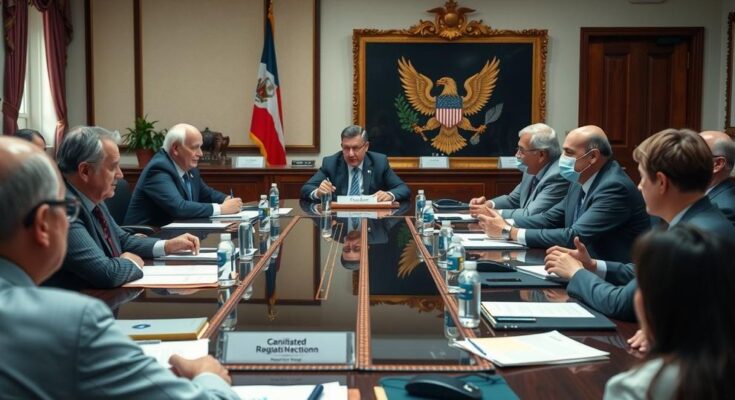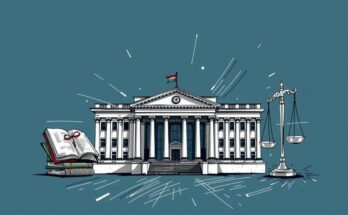The Cabinet, led by Prime Minister Jafar Hassan, has extended the exemption of fees for unlicensed vehicles until January 30, 2025, including those unlicensed for over a year. It has also amended investment incentives for industrial projects, removed minimum investment requirements, and supported agricultural land allocations and grants for human rights modernization.
On December 24, 2024, during a Cabinet session presided over by Prime Minister Jafar Hassan, significant economic measures were approved, including the extension of fee exemptions for unlicensed vehicles until January 30. This decision also encompasses vehicles that have remained unregistered for over a year, alleviating previous acquisition and re-registration fees. The initiative aims to enhance road safety and encourage vehicle owners to regularize their licenses, as reported by the Jordan News Agency, Petra.
In addition to the vehicle licensing measures, the Cabinet granted amendments to the investment incentive policy for small and medium-sized industrial projects within the Karak Industrial Institution. The previous stipulation requiring a minimum investment of JD15 million has been eliminated, allowing projects that achieve at least 40% local added value and hire a minimum of 150 Jordanian workers—70% of whom must reside in the governorate—to qualify for reduced utility costs and labor subsidies, irrespective of their investment size.
To further bolster economic development, the Cabinet endorsed recommendations from the settlement and conciliation committee to resolve outstanding cases involving 270 companies and taxpayers, along with the Income and Sales Tax Department. This initiative is in accordance with the government’s Economic Modernisation Vision, aiming to enhance tax compliance.
Moreover, the Cabinet supported the Jordan Valley Authority’s plan to allocate 3,024 dunums of land for agricultural projects in Wadi Araba and renewed the Jordan Duty-Free Company’s license to operate at Marka Civil Airport until April 30, 2025. Furthermore, a grant of 200,000 euros from the Spanish government was approved to modernize the National Centre for Human Rights in Jordan.
The Cabinet’s recent decision reflects a proactive approach to address issues related to unlicensed vehicles and stimulate economic activity through revised investment incentives. With the extended vehicle licensing exemption, the government seeks to motivate vehicle owners to register their cars, thereby improving safety on the roads. The amendments to the investment incentives signify a shift toward inclusivity, allowing smaller projects to benefit from government support, aligning with broader economic goals.
In conclusion, the Cabinet’s decisions signify a commitment to economic enhancement and improved public safety. By extending vehicle licensing exemptions and revising investment incentives, the government aims to foster a more conducive environment for vehicle registration and support the growth of small and medium-sized enterprises. These measures align with the broader objectives outlined in the Economic Modernisation Vision, emphasizing the importance of compliance and local value addition in the economy.
Original Source: jordantimes.com




